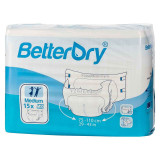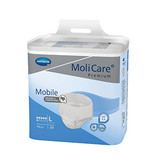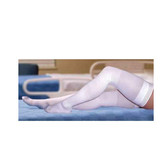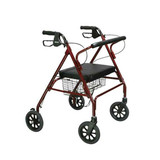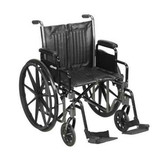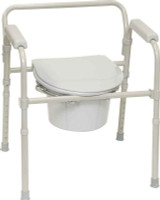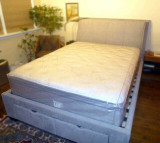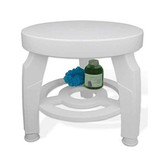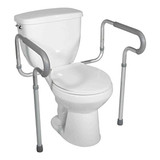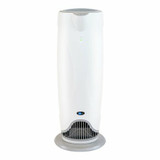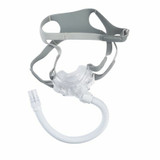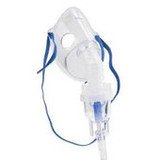
The Caregiver Guide – Sleep Disorders in Seniors
Once you accept the role of caregiver, you also accept the undertaking of prioritizing the overall well-being of your loved one or patient. And an important but much underestimated aspect of this responsibility is ensuring that they get enough restful sleep. Sleep disorders are common among older people and can significantly impact their quality of life.
In fact, according to a Mount Sinai article, older people wake up more frequently, resulting in shorter, more scattered periods of deep sleep. As a result, the person gets insufficient rest and often wakes up unrefreshed.
According to this report by Healthline Media, a leading health information site, poor sleep can be a precursor to serious health problems such as an increased risk of chronic diseases. The report also suggests that, while sleeping difficulty is common in older people, it is not necessarily a direct result of normal aging. It can, however, be exacerbated by other medical and lifestyle causes.
Understanding Sleep Issues in Older Adults
Sleep patterns naturally change as we age, and older people often experience alterations in their sleep architecture. They may have difficulty falling or staying asleep or obtaining deep, restorative sleep. They may also wake up more frequently during the night, resulting in more fragmented sleep.
Common Sleep Disorders
· Insomnia is characterized by difficulty falling asleep, staying asleep, or both. People with insomnia may experience daytime fatigue, mood disturbances, and impaired cognitive function.
· Sleep apnea is a condition where breathing stops and starts repeatedly during sleep. It can lead to snoring, gasping for air, and excessive daytime sleepiness. Sleep apnea requires medical intervention for diagnosis and treatment.
· Restless Legs Syndrome (RLS) is a neurological disorder characterized by an irresistible urge to move the legs, often accompanied by uncomfortable sensations. It can significantly disrupt sleep and cause daytime fatigue.
Causes of Sleep Issues
· The natural aging process can contribute to changes in circadian rhythms, hormone levels and overall health, all of which can upset sleep patterns.
· Chronic medical conditions such as arthritis, heart disease, or respiratory disorders cause discomfort and pain, which may trigger sleep disturbances.
· Certain medications may have side effects that interfere with sleep, causing insomnia or daytime drowsiness.
· Poor sleep hygiene, excessive caffeine or alcohol consumption, and lack of physical activity have the potential to contribute to sleep issues.
· Anxiety, depression, and stress sometimes negatively impact sleep quality.
The Impact of Sleep Issues on Health
· Lack of quality sleep can impair cognitive function such as memory, concentration, and problem-solving abilities.
· Sleep-deprived people have an increased risk of chronic conditions like cardiovascular disease, diabetes, and obesity.
· Sleep disturbances can exacerbate symptoms of anxiety and depression, leading to decreased emotional well-being, which, in turn, can translate to a deterioration in overall physical health.
· Fatigue caused by sleep issues increases the risk of falls and accidents.
Tips for Improving Sleep in Seniors
Since sleep disorders in older people are sometimes associated with other medical or behavioral conditions, there are several strategies that would help your loved one or patient to improve their sleep.
Creating a Restful Environment
Ensure that the bed and mattress are comfortable but provide adequate support. For someone experiencing back problems, you should opt for a somewhat firmer mattress, while for joint pain or arthritis, you want to lean toward the softer side.
Some people have difficulty sleeping when there is too much light. Darken the room using curtains, blinds or an eye mask. You may need a nightlight in case the patient needs to use the bathroom during the sleep cycle. Use earplugs or white noise machines to minimize external noises.
Maintain a cool and comfortable room temperature. If the budget doesn’t permit air conditioning, even a basic fan will make a difference.
Establishing a Bedtime Routine
Establishing a stable sleep pattern strengthens the circadian rhythms. Encourage a regular sleep-wake schedule, even on weekends.
Engage in relaxing activities before bed, taking a warm bath or practicing deep breathing exercises. It also helps to clear the mind or to slow it down by reading a book or trying meditation.
Try to avoid the intake of alcohol, nicotine or caffeine, especially close to bedtime. Many studies have been conducted over the years, and they unanimously point to these stimulants being responsible for poor sleep quality.
Make hay while the sun shines. Exposure to natural light during the day helps regulate the sleep-wake cycle. It’s also wise to avoid taking long or late-afternoon naps, as they are likely to disrupt nighttime sleep.
Addressing Underlying Health Conditions
The quality of sleep depends on many factors, including good nutrition. As we age, we begin to experience physical and medical problems that affect our nutritional health. These cannot always be resolved without interventions such as vitamin and mineral boosters or dietary supplements.
LL Medico stocks a wide range of popular and proven over-the-counter products designed to improve nutritional balance. With over 25 years of experience in the field of senior care issues, we are well-placed to assist you with an initial non-medical therapy strategy.
If sleep disorders persist or worsen despite implementing lifestyle and nutritional changes, it may be necessary to seek professional help. A sleep specialist will probably conduct a comprehensive evaluation, perform diagnostic tests if necessary, and recommend appropriate treatment options.
In most cases, treatment would commence with non-medical strategies such as Cognitive Behavioral Therapy (CBT). According to the Healthline Media report, studies have shown that CBT is very effective in improving sleep quality. In addition, behavioral changes also increase the quantity of sleep.
If all else fails, consult a healthcare professional for a thorough evaluation. Review medications with the doctor to identify any potential side effects that are interfering with sleep. If a chronic pain issue is one of the underlying problems, investigate appropriate medical interventions and pain management techniques.











